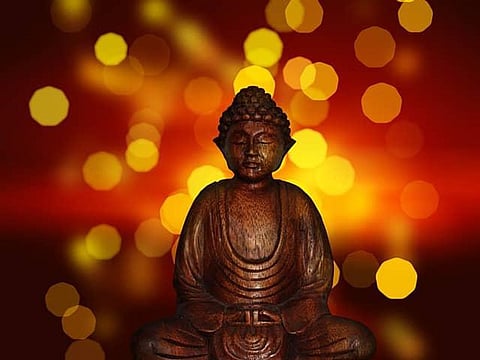
- Home
- न्यूजग्राम
- India
- World
- Politics
- Entertainment
- Culture
- Lifestyle
- Economy
- Sports
- Sp. Coverage
- Misc.
- NewsGram Exclusive
- Jobs / Internships

By Gaurav Sharma
At a time when a horrendous earthquake has shattered Nepal by killing more than 7,000 people and injuring countless others, the world needs the blessings of the Buddha more than ever before.
Majority of the population in Nepal comprises of Hindus. But the landlocked country boasts a strong Buddhist tradition as well. In fact, Gautama Buddha was born at a place called Lumbini in the Himalayan kingdom. Most of the temples in Nepal are common places of worship for both Hindus and Buddhists.
This year, however, most of the temples in Nepal lie in ruins, devastated by the whiplashes of the Nepal earthquake.
Swayambhunath temple, one of the oldest Buddhist temples in the nation will close its doors to the visitors for the fear of losing sacred objects and artifacts that no longer have the protection of temple.
However, irrespective of the desecration of the formal places of worship, which has left the bhakts (devotees) without any idol to offer their obeisance to, the prayers to and from Buddha will reach the mass of suffering people in Nepal nonetheless.
The traditional manner of celebrating Buddha Purnima holds the key to solace in such calamitous times.
Usually, the devout Buddhists and other followers assemble in the temple before dawn and sing hymns in praise of the holy trinity of The Buddha, the Sangha (disciples) and the Dhamma (his teachings).
The various offerings of candles, flowers, among other things, that they make at the feet of the teacher are symbolic of the ephemeral nature of life. As the candle flame burns out and the flowers wither away, the bubble of life will also in time.
In a symbolic act of Moksha or liberation, thousands of birds, animals are freed from captivity, to remind people not to torture someone against their will.
The happiness of other people or compassion assumes great significance in Buddhism and hence extols offering help to the aged, the sick and the handicapped.
But perhaps the greatest teaching of the Buddha, which holds a lesson in such traumatic and tragic times such as the Nepal calamity, are his words at the time of death.
When he saw his attendant weeping for his imminent passing away, the Buddha told him not to weep but to follow his teachings and understand the Universal Law of disintegration of every compounded thing:
If this exists, that exists; if this ceases to exist, that also ceases to exist.
By leading a noble life of peace and love, we can conquer death.
